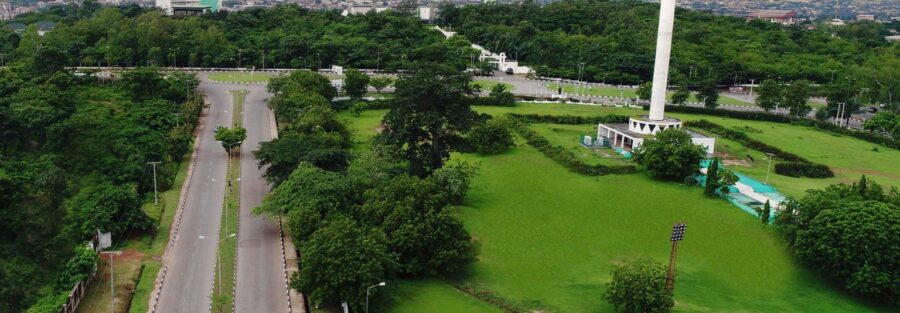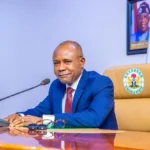In recent years, the global focus on sustainable development has sparked a growing interest in green economies as a pathway to economic growth and resilience. Governor Peter Mbah of Enugu State stands at the forefront of this movement, envisioning a transformative agenda that not only seeks to elevate the state’s GDP from $4 billion to $30 billion but also aims to eradicate poverty from a staggering 58.13% to net zero. This ambitious vision for a Green Enugu is underpinned by a suite of innovative policies and initiatives that promise to leverage the vast economic potentials of sustainable development to foster an era of unprecedented prosperity for Enugu State.
Unlocking Economic Growth through Green Initiatives
Governor Mbah’s vision for Enugu encompasses a strategic alignment with global trends in green economies, where sustainable practices are integrated into economic planning to drive long-term growth and environmental stewardship. Green economies prioritize investments in renewable energy, sustainable agriculture, and eco-friendly technologies, sectors that not only mitigate environmental impacts but also create new economic opportunities. In Enugu, this approach is expected to stimulate economic diversification, reduce dependency on traditional industries, and open new markets for green products and services.
One of the central pillars of this vision is the Enugu State Tree Planting and Urban Green Campaign (GES). This campaign is designed to transform Enugu into a greener, more sustainable environment through a series of impactful activities. By focusing on large-scale tree planting and the development of urban green spaces, GES aims to enhance the state’s ecological balance, reduce carbon emissions, and improve the quality of life for its residents. The economic implications are significant: enhanced urban green spaces can attract tourism, reduce healthcare costs by improving air quality, and create jobs in landscaping and urban forestry.
Governor Mbah’s Leadership in Green Economic Development
At the helm of this transformation is Governor Peter Mbah, whose leadership and commitment to sustainable development are driving Enugu’s green agenda. Under his administration, Enugu is set to become a model for other Nigerian states, demonstrating how a robust commitment to green principles can translate into tangible economic benefits. Governor Mbah’s strategy involves not only environmental initiatives but also a comprehensive plan to build human capital and infrastructure that support a green economy.
The Mbah Youth Technical Empowerment Programme (MYTEP) is a prime example of this strategy. MYTEP focuses on equipping the youth with technical skills needed to thrive in the green economy. By training young people in renewable energy technologies, sustainable agriculture practices, and green business management, MYTEP aims to foster a generation of self-reliant entrepreneurs capable of creating sustainable livelihoods. This initiative addresses the critical issue of youth unemployment while also ensuring that Enugu’s future workforce is aligned with the demands of a growing green economy.
Governor Mbah’s leadership extends beyond local initiatives to a broader engagement with international climate goals. Enugu’s ambitious climate targets are set within the framework of the **Enugu State Climate Policy and Action Plan (ESCAP)**. ESCAP is poised to become Nigeria’s first science-based climate policy and action plan, setting a precedent for evidence-based climate action in the country. By committing to significant reductions in greenhouse gas emissions and promoting renewable energy, ESCAP positions Enugu as a leader in climate resilience and sustainable development. This alignment with global climate policies not only enhances Enugu’s environmental credentials but also opens up access to international funding and investment opportunities earmarked for green projects.
The Global Opportunities in Green Economies
Globally, the transition to green economies is gaining momentum, driven by the urgent need to address climate change and the recognition of the economic opportunities inherent in sustainable development. The green economy is projected to create millions of jobs worldwide, with significant investments flowing into renewable energy, sustainable agriculture, and green infrastructure. For Enugu, integrating into this global movement presents a unique opportunity to attract foreign direct investment, access international climate finance, and develop export markets for green products and services.
Governor Mbah’s vision for a Green Enugu aligns perfectly with these global trends. By fostering a business environment conducive to green innovation and investment, Enugu can position itself as a hub for green technology and services in Nigeria and beyond. Initiatives like the Mbah Climate Education, Innovation, and Training Initiative (Mbah-CEITI) are crucial in this regard. Mbah-CEITI focuses on promoting education, innovation, and technological creativity to develop practical solutions for climate challenges in Enugu. Through this initiative, the state aims to cultivate a vibrant ecosystem of green startups and innovators who can drive economic growth and create sustainable employment opportunities.
Furthermore, the push towards a green economy offers Enugu the chance to enhance its agricultural sector through sustainable practices. Embracing sustainable agriculture can boost productivity, ensure food security, and open new markets for organic and eco-friendly products. This not only supports local farmers but also contributes to the state’s economic diversification and resilience. By aligning agricultural practices with environmental sustainability, Enugu can attract investment into its agricultural sector and capitalize on the growing demand for sustainably sourced products.
Towards a Prosperous and Sustainable Future
Governor Peter Mbah’s vision for a Green Enugu is a blueprint for harnessing the economic potentials of sustainable development. By integrating green principles into the state’s economic planning, Enugu is set to embark on a transformative journey towards prosperity and environmental stewardship. The comprehensive suite of initiatives under Governor Mbah’s administration – from the GES to MYTEP, and from ESCAP to Mbah-CEITI – showcases a forward-thinking approach that places Enugu at the forefront of Nigeria’s green transition.
This vision is not just about environmental sustainability; it is about creating a resilient, diversified economy that can thrive in the face of global challenges. As Enugu embraces its green future, it stands to reap significant economic benefits, reduce poverty, and improve the quality of life for its citizens. By leveraging the opportunities of the green economy and fostering innovation, Governor Mbah’s leadership is setting the stage for Enugu to become a beacon of sustainable development in Nigeria and a model for other states to follow.
In conclusion, the economic potentials of Governor Mbah’s vision for a Green Enugu are vast and multifaceted. By driving a comprehensive agenda that includes environmental initiatives, human capital development, and alignment with global green economy trends, Enugu is poised to achieve significant economic growth and social prosperity. This vision, underpinned by robust leadership and innovative policies, represents a transformative pathway for Enugu State towards a sustainable and prosperous future.



